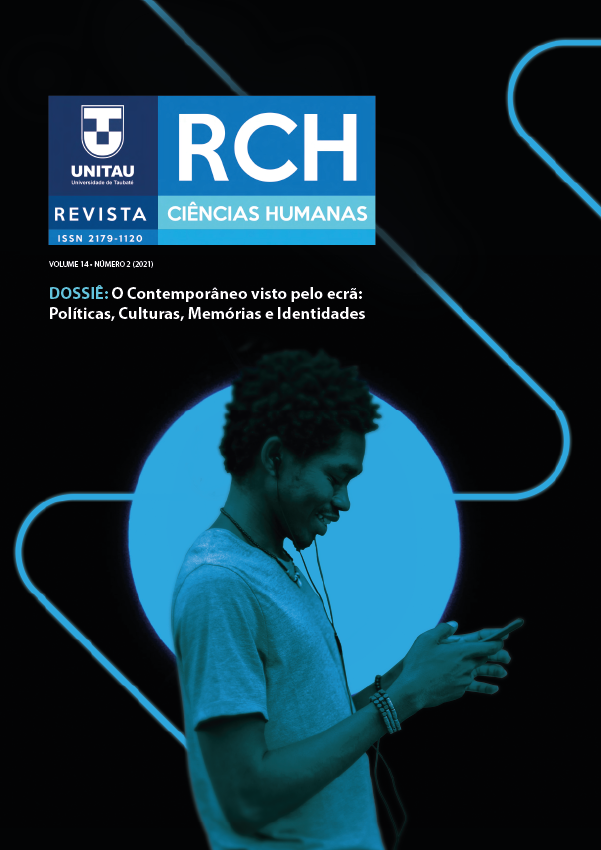DILEMAS OF CYBERDEMOCRACY
to which measure does ciber potentialize democracy?
DOI:
https://doi.org/10.32813/2179-1120.2121.v14.n2.a732Keywords:
Cyberdemocracy, Social Media, Digital Communication, Political ScienceAbstract
This article aims to interpret the social effects of cyberdemocracy in contemporary society, identifying possible democratic damages, linked mainly to the use of social networks as a platform for dissipating discourses. The analysis of the phenomena is based on bibliographic research, carrying out a theoretical review on authors in the area and is divided into three moments. Firstly, the definition of the research question; which aims to answer whether “within the new scenarios presented by cyberdemocracy, with a focus on the use of social networks in the political sphere, problems have also arisen that can harm democracy?” In the second moment, the theory of digital democracy is interpreted, where there is greater ease and proximity for the insertion of the citizen in socio-political facts, observing the form and effects of this new factor. After collecting information from internet articles and printed books, cyberdemocracy was conceptualized and online quarrels were identified, such as social bubbles, fake news and debates where the truth is not privileged. Finally, it is noted that many individuals use social networks, not knowing its structure or taking advantage of it, mitigating problems of democratic coexistence, making e-democracy not only present benefits.
Metrics
References
Bosco, F. (2017) A vítima tem sempre razão? 1.ed. São Paulo: Todavia.
Brusadin, M; Graziano, X. (2020). Marketing político e o Darwinismo digital” In: Fratini, J (Org.). Campanhas políticas nas redes sociais: Como fazer comunicação digital com eficiência (pp.45-55). 1.ed. São Paulo: Matrix.
Castells, M. (2009). A Sociedade em Rede. 1.ed. São Paulo: Paz & Terra.
Celeti, Filipe Rangel. (2011, 20 de junho) Filosofia política. Felipe Celeti - Filosofia, Educação, Política e Liberdade. Recuperado de: https://fceleti.wordpress.com/
Ford, S; Green, J; Jenkins, H. (2014). A Cultura da Conexão: criando valor por meio da mídia propagável. Trad. Patrícia Arnaud – 1.ed. São Paulo: Aleph.
Fratini, J. (2020). Campanhas políticas nas redes sociais. Como fazer comunicação digital com eficiência. 1.ed. São Paulo: Matrix.
Gillespie, T. (2018). A relevância dos algoritmos. Revista Parágrafo, 6, 95-121.
Guerra, Luiz Antonio. (2016, 08 de dezembro). Democracia. Infoescola. Recuperado de: https://www.infoescola.com/politica/democracia/
Lévy, P. (2003) A inteligência coletiva: por uma antropologia do ciberespaço. 3.ed. São Paulo: Loyola.
Llorente, J.A. (2017). A era da pós-verdade: Realidade versus percepção. Revista UNO. 27, 8-11.
Mitra, A. (2001, 01 de março). Marginal voices in Cyberspace. Sage Jounals Recuperado de: https://journals.sagepub.com/doi/abs/10.1177/1461444801003001003
Moura, R.S. (2018) Eleições 2.0: o uso das redes sociais digitais durante as Eleições Suplementares ao Governo do Estado do Amazonas. [Dissertação de Mestrado em Psicologia, Universidade Federal do Amazonas, Amazonas].
Resenfield, D.L. (2003). O que é democracia? 1.ed. São Paulo: Brasiliense.
Ribeiro, C. (2019, 15 de fevereiro) Conheça as redes sociais mais usadas no Brasil e no mundo em 2018. TechTudo. Recuperado em: https://www.techtudo.com.br/noticias/2019/02/conheca-as-redes-sociais-mais-usadas-no-brasil-e-no-mundo-em-2018.ghtml
Rodegheri, L.B; Santos, F.S. (2012, 31 de julho). O exercício da ciberdemocracia e os limites à liberdade de expressão na blogosfera: o caso do blog conversa afiada. Coral, UFSM. Recuperado em: http://coral.ufsm.br/congressodireito/anais/2012/21.pdf
Rodrigues, C. (2004, 02 de dezembro). Uma ágora na net. Labcom. Recuperado em: http://labcom.ubi.pt/files/agoranet/04/rodrigues-catarina-blogs-agora-na-net.pdf
Segata, J; Rifiotis, T. (2016). Políticas etnográficas no campo da cibercultura. 1.ed. Joinville: Letra D’água.
Stunipf, I.R. (2011). Pesquisa bibliográfica. In: Barros, A; Duarte, J. Métodos e técnicas de pesquisa em comunicação (pp.73-82). 2.ed. São Paulo: Atlas.
Wichowski, A. (2017, 23 de julho) Pós-verdade na era da informação. Um Brasil. Recuperado em: https://www.youtube.com/watch?v=lmDegcIAX70
Downloads
Published
How to Cite
Issue
Section
License
Copyright (c) 2021 Human Sciences Journal - RCH

This work is licensed under a Creative Commons Attribution 4.0 International License.
The publications of the Human Sciences Journal are registered under the Creative Commons Attribution CC-BY license.
1. The contents of the manuscripts are the exclusive responsibility of their author.
2. It is allowed the total or partial reproduction of manuscripts published in the journal, provided that the source is cited.
3. When submitting their manuscript to the Journal, the authors certify that they are of their own authorship and unpublished (not published in any digital or printed media).
4. The copyright of the articles published in the Journal are of the author, with first publication rights reserved for this journal.
5. For disclosure purposes, the Journal may replicate the works published in this journal in other media, such as social networks (Facebook, Academia.Edu, etc.).
6. The Journal is of public access, therefore, the authors who submit manuscripts agree that they are of free use.
7. In case of any illegality, fraud, or other attitude that puts in doubt the honesty of the publication, especially the practice of plagiarism, the manuscript will be automatically rejected.
8. If the manuscript has already been published, it will be immediately removed from the base of the Journal, its citation linked to the Journal will be prohibited and the cancellation of the referred publication shall be reported in the next issue of the one in which the article was published. In case of the procedure for the withdrawal of the paper the authors will be informed beforehand, being guaranteed the right to a broad defense.
9. The personal data provided by the authors will be used exclusively for the services provided by this publication and will not be made available for other purposes or to third parties.





